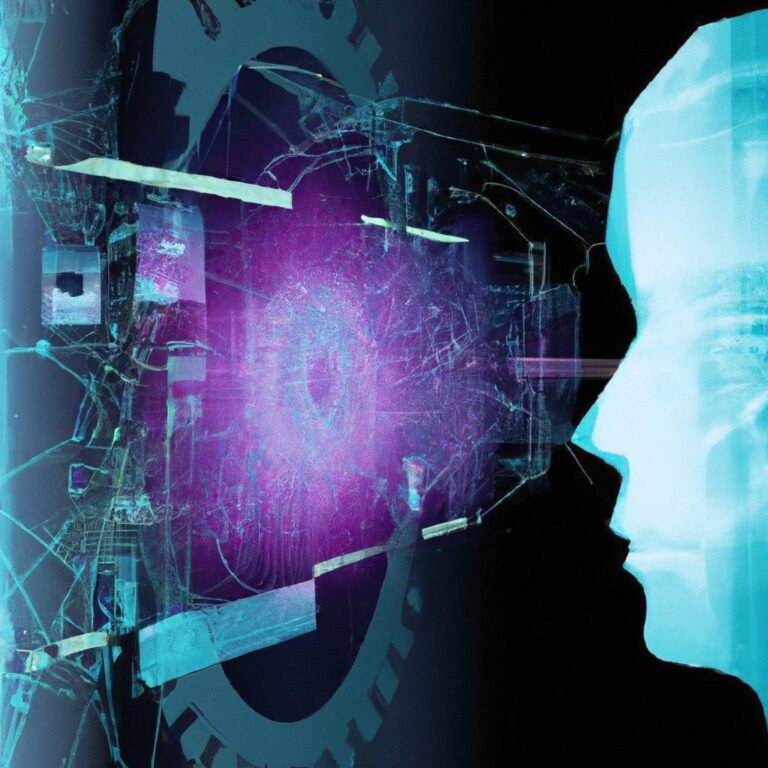In the rapidly evolving landscape of technology, artificial intelligence (AI) stands out as a transformative force, shaping not only how we interact with machines but also how we approach complex problems across various industries. From automating mundane tasks to enabling data-driven decision-making, AI is carving out new pathways and possibilities that were once the realm of science fiction. As we delve into this exciting era, it’s crucial to understand the profound implications of AI—how it’s revolutionizing everything from business operations to healthcare, and even the way we navigate our daily lives. This article will explore the advancements in AI technology, the innovative applications that are emerging, and the future potential that lies ahead, inviting you to contemplate the role of AI in crafting a smarter, more efficient tomorrow.
Table of Contents
- The Integration of AI in Everyday Technologies
- Transforming Industries: AI Innovations in Healthcare and Finance
- Ethical Considerations and Governance in AI Development
- Harnessing AI for Enhanced User Experience and Engagement
- The Conclusion
The Integration of AI in Everyday Technologies
The proliferation of artificial intelligence has woven itself into the fabric of our daily lives, enhancing various facets of technology we often take for granted. From personal devices to large-scale applications, AI is not just a buzzword but a functional element that enables smarter decisions and seamless interactions. Smart assistants like Siri and Google Assistant have transformed the way we interface with our devices, now capable of understanding natural language, completing complex tasks, and learning user preferences. Moreover, recommendation systems on platforms such as Netflix and Amazon have become more advanced through AI, providing tailored content suggestions that save consumers time and elevate their experiences.
The integration of machine learning algorithms empowers a profound shift in sectors like healthcare, finance, and transportation. In healthcare, AI algorithms analyze patient data swiftly, leading to early detection of diseases and personalized treatment plans. Likewise, in finance, AI enhances fraud detection by analyzing patterns in real-time, which significantly reduces risks for institutions and users alike. Furthermore, autonomous vehicles, equipped with AI, promise a future with safer roads and optimized traffic flow. The potential applications are endless, as organizations leverage AI to not only improve efficiency but also foster innovation.
Transforming Industries: AI Innovations in Healthcare and Finance
Artificial Intelligence is rapidly changing the landscape of various industries, with healthcare and finance standing out as two sectors experiencing immense transformation. In healthcare, AI applications range from diagnostic tools that analyze medical imaging data to predictive algorithms that foresee patient health issues before they arise. These innovations not only enhance the accuracy of diagnoses but also streamline patient care processes, enabling practitioners to spend more time with patients and less on paperwork. Some key contributions of AI in healthcare include:
- Predictive Analytics: Helps in identifying potential health risks.
- Robotic Surgery: Increases precision and reduces recovery time.
- Personalized Medicine: Tailors treatment plans to individual patient genetics.
Meanwhile, in the financial sector, AI is revolutionizing operations with tools that improve fraud detection, enhance customer service, and enable high-frequency trading through algorithms. Financial institutions are leveraging machine learning models that analyze vast datasets for trends and anomalies, significantly reducing risk and improving decision-making processes. The impact of AI in finance can be illustrated through:
- Algorithmic Trading: Allows rapid execution of trades based on market data.
- Customer Insights: Enhances targeted marketing strategies.
- Risk Management: Improves assessment and mitigation of financial risks.
| Industry | AI Innovation | Impact |
|---|---|---|
| Healthcare | Diagnostic Tools | Enhanced Accuracy |
| Finance | Fraud Detection | Reduced Losses |
| Healthcare | Predictive Analytics | Improved Patient Outcomes |
| Finance | Risk Assessment Models | Stronger Decision-Making |
Ethical Considerations and Governance in AI Development
The rapid advancement of artificial intelligence presents numerous opportunities, but it also necessitates a thorough examination of ethical considerations. As AI systems become more integrated into our daily lives, it is imperative that developers prioritize transparency, accountability, and fairness. This involves establishing clear guidelines to ensure that AI does not perpetuate biases or cause unintended harm. Organizations must engage diverse stakeholders in the development process, enabling a holistic view of the implications of AI technologies on different communities. As we move forward, questions regarding data usage, privacy, and informed consent must be at the forefront of AI governance.
Moreover, effective governance frameworks are crucial for steering AI innovation responsibly. Governments, industry leaders, and research institutions should collaborate to create regulatory standards that promote ethical practices while fostering creativity. Potential governance approaches include:
- Establishing ethical review boards to oversee AI projects at every stage.
- Implementing rigorous testing to assess the real-world impacts of AI systems.
- Creating education initiatives to inform developers and users about the ethical use of AI technology.
Through proactive governance and ethical consideration, we can harness the power of AI while safeguarding our societal values.
Harnessing AI for Enhanced User Experience and Engagement
Artificial Intelligence is reshaping the way businesses interact with their customers, leading to more personalized experiences that cater to individual preferences. By leveraging machine learning algorithms and data analytics, organizations can analyze user behavior and tailor content accordingly. This level of customization not only enhances user satisfaction but also encourages deeper engagement with the brand’s offerings. Here are some key strategies that companies are employing to harness AI for better user interactions:
- Predictive Analytics: Anticipating user needs and preferences based on historical data.
- Chatbots: Offering real-time support and assistance to improve responsiveness.
- Content Recommendations: Curating personalized content based on user activity.
- A/B Testing: Utilizing AI to optimize layouts and content for maximum engagement.
The impact of these AI-driven approaches can be observed in various sectors, where organizations are not only meeting but exceeding customer expectations. For example, e-commerce platforms use AI to analyze cart abandonment rates and employ targeted outreach strategies to re-engage potential buyers. Below is a simplified overview of how AI contributes to user experience across different industries:
| Industry | AI Application | Impact on User Experience |
|---|---|---|
| E-Commerce | Tailored Recommendations | Increased Sales and Retention |
| Healthcare | Predictive Diagnostics | Improved Patient Outcomes |
| Finance | Fraud Detection | Enhanced Security and Trust |
| Travel | Personalized Itineraries | Higher Customer Satisfaction |
The Conclusion
As we stand on the precipice of a new technological era, it’s clear that artificial intelligence is not just a passing trend but a fundamental shift in how we interact with and understand the world around us. From enhancing business processes to transforming healthcare, education, and beyond, the implications of AI’s capabilities are vast and profoundly impactful.
However, as we continue to explore the depths of what AI can achieve, it’s essential to remain mindful of the ethical and societal considerations that accompany this powerful tool. Collaboration between technologists, policymakers, and communities will be crucial in ensuring that the benefits of AI are harnessed responsibly and equitably.
embracing the revolution AI brings means not just adapting to new technologies, but also rethinking our approaches, fostering innovation, and prioritizing human-centered design. As we look ahead, let’s remain engaged and curious about how this exciting journey will unfold, shaping a future where technology and humanity coexist harmoniously. Together, we can navigate this landscape, ensuring that the advancements we make serve to enhance our collective experience and lead us to a brighter tomorrow.





